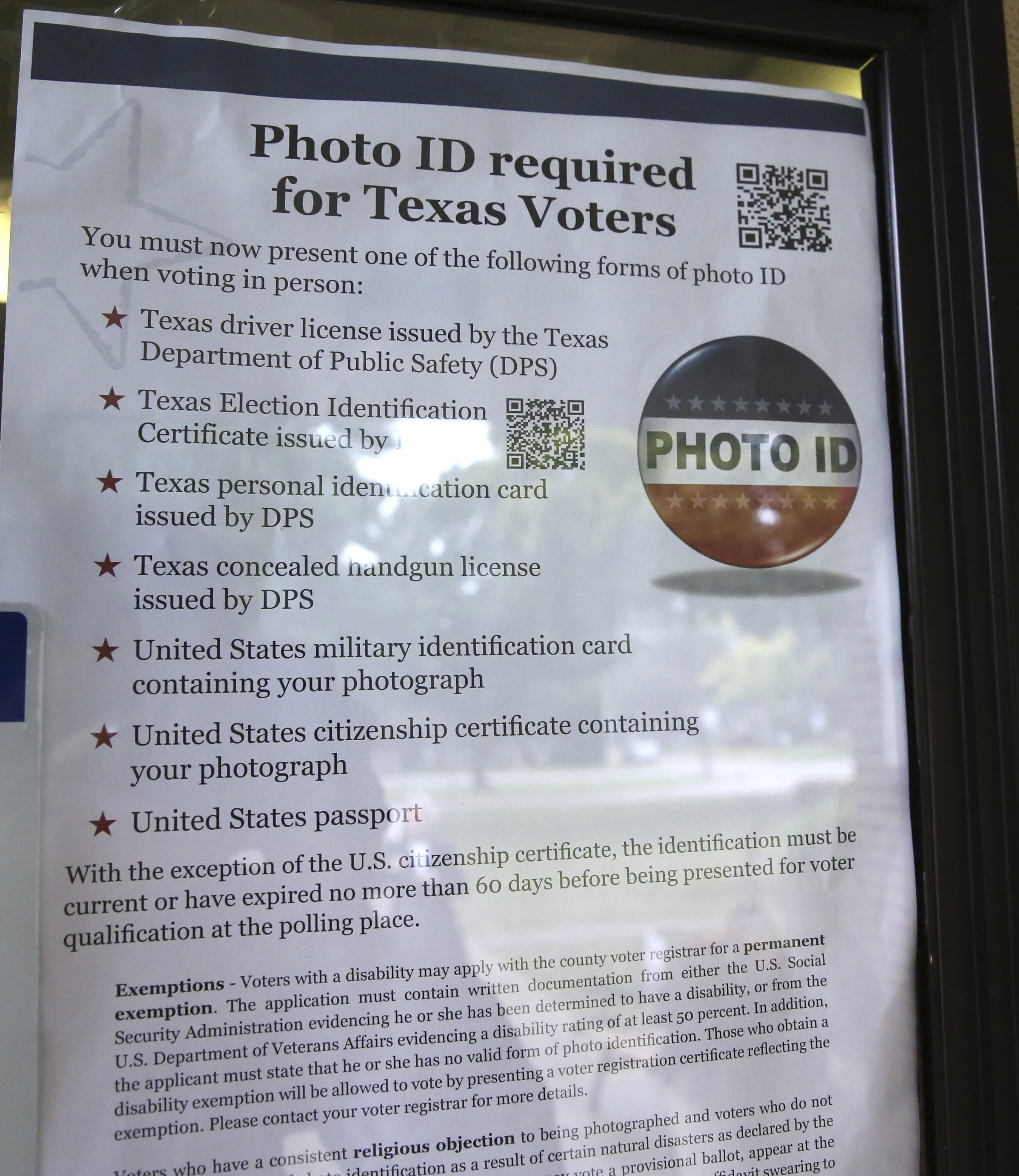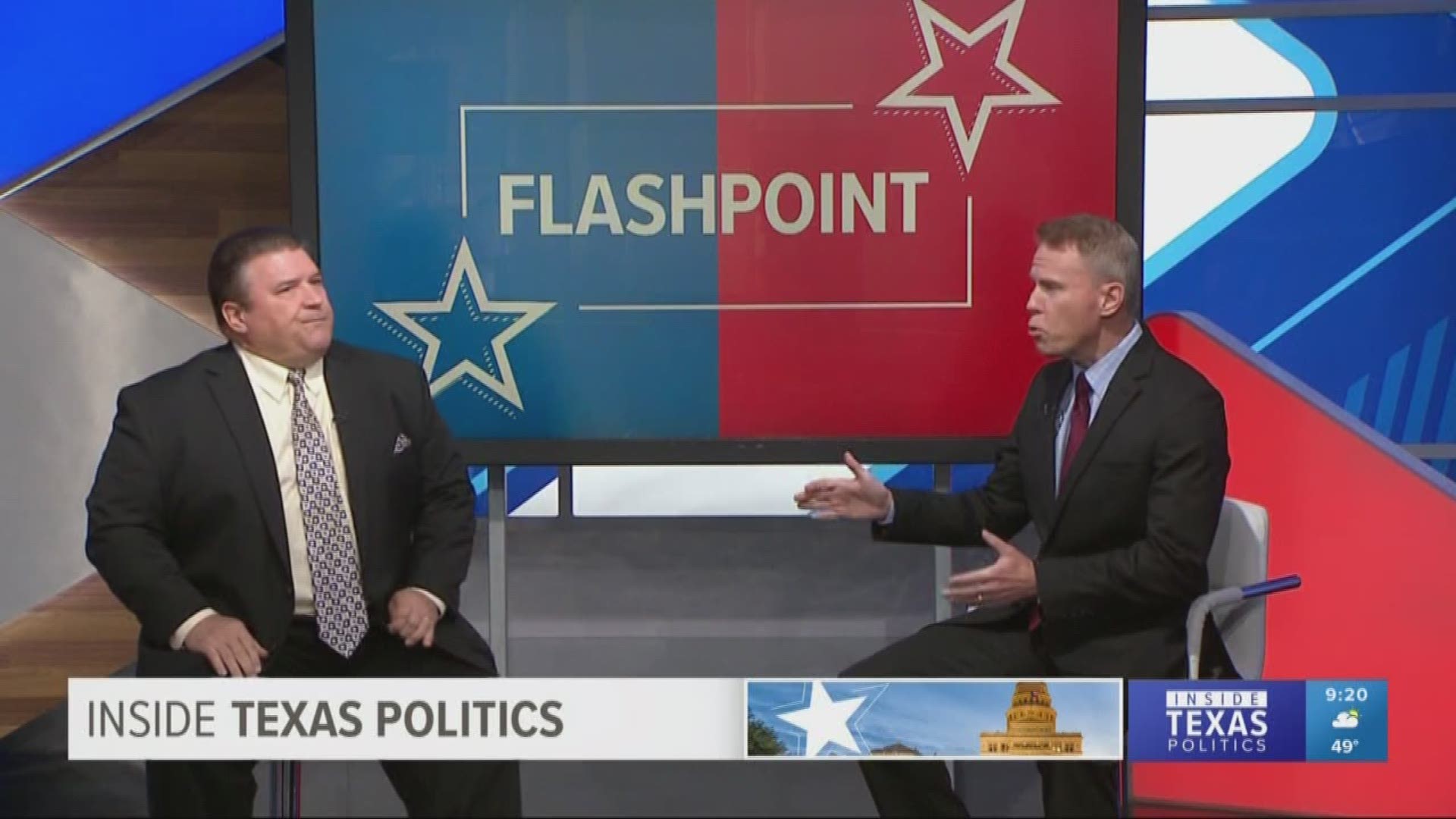A federal appeals court struck down Texas' tough voter identification law as discriminatory Wednesday, giving civil rights advocates a crucial victory in advance of the 2016 election.
The 9-6 ruling from the U.S. Court of Appeals for the 5th Circuit, a generally conservative court, represents the third consecutive decision against the Texas law and sets up a potential Supreme Court showdown over the contentious issue of state photo ID rules.
The law could have left up to 600,000 voters without the proper identification in this fall's elections, opponents claimed. Because of that, the Supreme Court had invited voting rights advocates to seek a delay in the photo ID requirement if the appeals court had not ruled by Wednesday.
The appeals court majority said the law was not intended to discriminate but had that effect on minority voters.
"The district court must ensure that any remedy enacted ameliorates (the law's) discriminatory effect, while respecting the legislature's stated objective to safeguard the integrity of elections by requiring more secure forms of voter identification," the court said.
Dissenting judges said the law was reasonable in both purpose and effect.
"Requiring a voter to verify her identity with a photo ID at the polling place is a reasonable requirement widely supported by Texans of all races and members of the public belonging to both political parties," they said. The majority ruling "fans the flames of perniciously irresponsible racial name-calling."
The law was enacted in 2011, blocked by a federal district judge in 2012 and then put into effect in 2013, when the Supreme Court struck down a key part of the Voting Rights Act that had required Texas and some other states to get federal approval for voting changes. Challengers have won every court case since, but the law had remained in effect.
Texas Attorney General Ken Paxton criticized the court ruling. "Preventing voter fraud is essential to accurately reflecting the will of Texas voters during elections," he said, "and it is unfortunate that this common-sense law, providing protections against fraud, was not upheld in its entirety.”
Gerry Hebert, executive director of the Campaign Legal Center — which represented some Texas challengers — said "this law will no longer prevent eligible voters from casting a ballot this November.”
Other civil rights groups applauded the ruling bur wished for more -- a ruling that Texas lawmakers passed the law with a purpose to discriminate.
“We believe that the evidence is clear that (the law) was passed by a legislature that intended to discriminate and that the law must be invalidated in its entirety," said Sherrilyn Ifill, president of the NAACP Legal Defense and Education Fund.
The Texas case and another challenge to North Carolina's array of voting restrictions are the leading contenders among many voting rights cases to get to the Supreme Court as early as next year, when the justices could define what types of voting changes are allowed and prohibited under the Voting Rights Act.
"There is not a lot of guidance from the Supreme Court on these vote dilution cases," Thomas Farr, a lawyer representing North Carolina before the 4th Circuit appeals court, said last month. That court's decision is expected soon.
The Supreme Court has itself to thank for some of the laws enacted after the justices struck down a key part of the Voting Rights Act in 2013. Those laws impose new rules for registering and voting that could limit access to the polls for minorities and young people in particular — the coalition that propelled Barack Obama to the White House in 2008 and 2012.
Seventeen states have new voting procedures in place for the November election, more than half of which are being challenged in court. Many require voters to show photo identification, such as the Texas law. Others target rules for registering, early voting and provisional voting, such as the wide-ranging North Carolina law that caused confusion and long lines in March's primary.
Those wide-ranging restrictions came under attack as racially discriminatory before a three-judge panel of the U.S. Court of Appeals for the 4th Circuit inn June. One judge said the legislature's rush to impose limits after getting a green light from the Supreme Court in 2013 "looks pretty bad to me."

![Federal Appeals Court strikes down Texas Voter ID Law [video : 87358342]](http://videos.usatoday.net/Brightcove2/29906170001/2016/07/29906170001_5043800326001_5043779811001-vs.jpg?pubId=29906170001)

